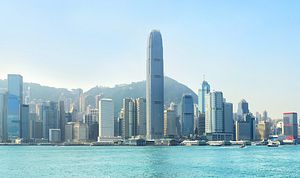The decision on the election of Hong Kong’s next chief executive in 2017 adopted by China’s National People’s Congress has generated a great deal of controversy. Pan-democrats in Hong Kong (here and here) claim that the NPC’s proposal would not bring true democracy to Hong Kong and that Hong Kong people should reject it. Such a view is too simplistic and impractical for a set of reasons, thus hurting rather than helping Hong Kong’s overall interests.
To be sure, pan-democrats have a point that Hong Kong needs democracy. But they have made three mistakes in their fight for universal suffrage in recent years. The first mistake is that pan-democrats have underestimated the central government’s security concerns. Worried that Hong Kong would be used as a base by anti-CCP and anti-China forces, the central government wants to ensure that the future chief executive will not hurt China’s security interests. As a professor at the Chinese University of Hong Kong argues, Hong Kong’s democracy issue must be viewed within the larger context of China’s rise and the asymmetrical relationship between Hong Kong and mainland China. A small player needs wisdom when dealing with a big player, and Hong Kong should not use threats (like the “Occupy Central” movement) to force mainland China to compromise. The article goes on to argue that the case of Finland-Russia relations might offer useful suggestions for Hong Kong-Mainland relations.
The second mistake is the radicalization of pan-democrats in Hong Kong, as evidenced by the Occupy Central movement. It might make more sense if Occupy Central were merely a bargaining strategy as one of the organizers, Benny Tai, explained. But this strategy was doomed to fail from the first day it was proposed by radicals. The reason is very simple: Beijing cares about Hong Kong’s stability and prosperity, but if the choice is between national security and Hong Kong’s prosperity, Beijing will choose the former. The Occupy Central strategy is essentially turning Hong Kong-mainland relations into an “us vs. them” ( 敌我矛盾) relationship rather than an “internal conflict” (内部矛盾). Plus, this strategy only strengthens the hardliner’s view that Hong Kong is increasingly becoming anti-CCP and anti-China. Now even Benny Tai admits that the strategy failed, suggesting that pan-democrats should find an alternative strategy.
The third mistake is that pan-democrats have overestimated the value of direct democracy for Hong Kong. As many have pointed out (here and here), Hong Kong is gradually losing its competitive advantages due to structural issues, particularly compared with Singapore and Shanghai. Hong Kong as a small city player must handle two important relationships simultaneously, i.e., integration with the mainland economy and integration with the global economy. In this sense, even if pan-democrats get what they wish for and their candidate becomes the next chief executive, Hong Kong’s social and economic problem will not go away, a view supported by U.S. scholars. All of these suggest that pan-democrats are probably focusing on the wrong issue here. A more important issue is perhaps the relationship between the legislature and the chief executive. Directly elected or not, the chief executive cannot belong to any party, thus often receiving very little support from the legislature. This issue merits more attention from the pan-democrats.
In the end, the choice for pan-democrats and Hong Kong’s people is between having universal suffrage in 2017 (however imperfect it is) and having it in 2027 or even later (still imperfect). Hong Kong’s pan-democrats can express their frustration and anger, which is understandable in a sense, but at the end of the day, they should be rational when it comes to politics. Politics is not just about passion but also about the ability to be pragmatic.
Lastly, an equally important and unfortunately neglected issue is the potential impact on mainland China’s own democracy development in the future. Hong Kong’s smooth transition to a direct democracy will have a huge and positive impact on mainland China’s democratic future. For this and other reasons, it is very important for pan-democrats in Hong Kong to move forward and start reforming gradually.

































